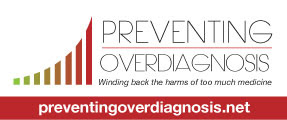Heart failure is the most common reason seniors wind up in the hospital, and many patients are hospitalized again and again. They find it's just too difficult to properly manage their condition with its complex drug regimens, dietary restrictions, and frequent monitoring—all of which have been shown in studies to reduce their risk of severe disability and even death. As a family doctor, I've always had a hard time getting my patients to adhere to my advice on managing their heart failure and assumed that any additional one-on-one counseling would be beneficial. Turns out, though, that may not be the case. A study published in a recent issue of JAMA finds that patients with heart failure who receive customized support are no less likely to suffer from disabling symptoms, be hospitalized, or die prematurely than patients receiving standard educational materials.
Self-management support has been shown to improve blood sugar control and quality of life in patients with diabetes. It differs from traditional patient education in that it enables patients to better monitor their own conditions, set personal goals, and overcome any physical or psychological impediments that prevent them from controlling their disease. Rather than, say, simply handing a patient a brochure about the disease and its treatments, a doctor would help patients implement problem-solving strategies and tap into community resources. For example, clinicians might help patients sketch out exercise plans or help them join a local YMCA or neighborhood walking group. They would also check in with patients every week or two to see if those exercise promises were being kept.
The researchers in the JAMA study, which included more than 900 patients with mild to moderate heart failure, randomly assigned participants to either receive face-to-face counseling with educational materials or just the materials without any counseling. Those who received counseling attended two-hour meetings 18 times over the duration of a year to learn skills in monitoring their condition, reducing stress, altering their diets and calling on family and friends for support with their changes. Unfortunately, the study found that these intensive efforts were no better than basic educational materials.
I prefer, though, to look at this from a positive perspective. Those patients in the study who received just the educational materials were actually quite successful at reducing their sodium intake and reported less depression and improved confidence in their ability to manage their disease. These patients had 18 tip sheets mailed to them over a year and received followup phone calls to make sure they'd received each one; the caller also answered any questions patients had about the sheets. This type of support that the control group received, frankly, goes above and beyond the normal standard of care for most heart failure patients. What's more, it was just as good as 36 hours of face-to-face meetings—and far less expensive.
For me, the take-home message of this study is that if you have heart failure, you should learn as much as you can about things you can do to manage your condition, and the way you get that information doesn't seem to matter. Perhaps face-to-face counseling with a doctor or nurse works best for you. Maybe you'd rather take home some handouts to read on your own or look up information online from reputable health sites run by the government or university health centers. Or you may choose to turn to social networking tools such as blogs, Twitter or smart phone apps that have supportive and educational messages. While these technologies weren't included in the JAMA study, I'd be surprised if they don't turn out to be effective too.
**
The above post is excerpted from "Heart Failure Treatment: Counseling Not Necessary," first published on my Healthcare Headaches blog on USNews.com. (By the way, I don't write the headlines. In this case I would not have chosen those words. Counseling is necessary and good - but more counseling may not be better.)
skip to main |
skip to sidebar

Common sense thoughts on public health and conservative medicine from a family doctor in Lancaster, PA.
Search This Blog
Blog Archive
-
▼
2010
(107)
-
▼
September
(10)
- Self-management support doesn't help in heart failure
- One month until the FMEC NorthEast Region meeting
- The best recent posts you may have missed
- Money-saving medication tips
- Patient-centered primary care: easier said than done
- Primary care and health disparities
- Guest Blog: Prescription report cards
- Required reading
- Quality assessment in primary care: an imperfect s...
- Writing awards
-
▼
September
(10)
About Me

- kennylin
- I am a board-certified Family Physician and Public Health consultant practicing in Lancaster, PA. I am also Deputy Editor of the journal American Family Physician and teach residents and medical students at Lancaster General Health / Penn Medicine Family Medicine Residency program. I am paid to provide independent editorial and medical consulting services to the American Academy of Family Physicians, WebMD, and others. However, the content of this blog reflects my personal views only, and does not represent the views of any medical institution, publisher, or the AAFP.










